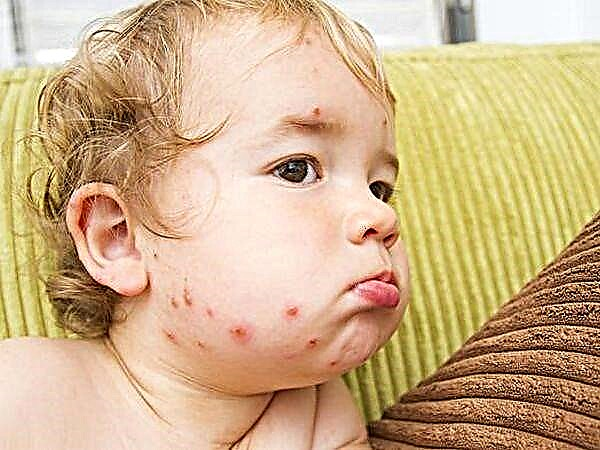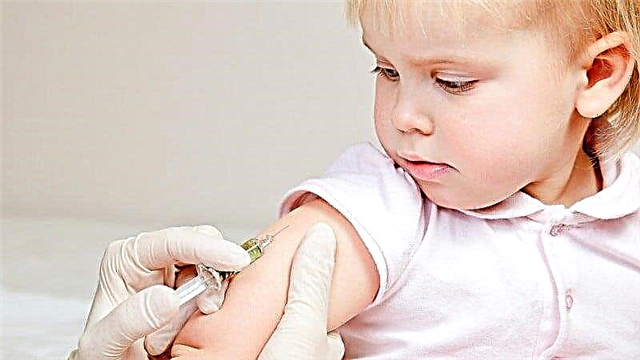A nerve cough can begin not only in an adult, but also in a child. In babies under three years old, it is extremely rare, almost always fades away before the age of 18. Parents need to know how to distinguish it from a symptom that accompanies airway damage, and what to do to get rid of the seizures.

Cough
A child's nervous cough usually occurs at the age of 3-4 years. It is rarely possible to immediately determine its cause. When attacks are observed for a long time, while there are no other signs of a cold or inflammation, doctors suspect a neurotic cough, it is also called psychogenic. It is often confused with an allergy symptom. But with it, the child usually has reddening of the eyes, watery eyes, a rash may appear on the body, the baby sneezes. If this does not happen, then an allergic cough is excluded.
Features of neurotic cough
Nervous cough is considered a type of nervous tic. So, children can blink, close their eyes, twitch their noses. If the tic is associated with breathing, it is called vocal. The kid can sniff, whistle, whine. A neurosis can combine several manifestations, for example, a child bites his nails and winds his hair around his finger.
Note! Experts believe that when the muscles of the vocal muscles begin to contract rhythmically, the child coughs. Therefore, a similar symptom can be considered a vocal tic.
Neurotic cough does not go away with drug treatment, but it does not get worse. Attacks occur in stressful situations, while their nature remains. They usually go away on their own when the child outgrows. Most often it occurs at the age of 18, it can happen earlier.
Key features
A neurotic cough has the following characteristics:
- The attacks occur exclusively during the daytime. When the child is asleep, the cough does not bother him;
- There are no fever, runny nose and other symptoms of the disease;
- Antitussives and expectorants have no effect. Additional moisturizing of the mucous membrane does not help. The cough does not become productive;
- If the baby is fascinated by something, is busy with the game or quickly tells interesting information for him, does not cough;
- Sports activities, running, jumping and other loads improve the condition. At this time, the seizures do not overwhelm the child;
- The aggravation occurs in autumn and winter. The rest of the time, deterioration is not observed.
The treatment depends on the symptoms of a nervous cough in a child, usually they try to do without medication. If the attacks are more frequent, you will not be able to cope without them. The main thing is to find out what causes them to appear and try to eliminate the provoking factor.
Causes
The nature of neurological cough is not fully understood. It is believed that factors contribute to its development:
- Constant stress, unfavorable family environment. For example, parents often scold a child, everything forbids him, do not listen about his problems;
- Overwork caused by excessive mental activity, when the child attends a lot of circles and sections, does not have time to rest;
- Physical fatigue due to heavy workload during sports;
- Conflicts with peers, teachers;
- The kid repeats after the adults. So, if he lives with a grandmother suffering from a chronic cough, then he can copy her;
- Events that cause fear. For example, a child is afraid to speak in front of a large crowd of people or is worried about moving.
A psychogenic cough can remain after an illness. If during the illness the parents were too worried, shaking over the child, he could take over the mood of mom and dad. They were overly worried, focusing on the unpleasant symptom, which is why it persisted after recovery. It can worsen the next time the disease recurs. The cough will turn into a reflex. It arises as a reaction to a traumatic event.

Child is sick
Also, for example, if during a cold the child experienced severe stress, for example, the parents divorced, or the grandmother died, the cough may remain even after the baby is recovering. If the experiences are too strong, then the symptom will be aggravated by other disturbing or sad events in the life of the baby.
Diagnostics
A neurasthenic cough can be suspected by close observation of the child, especially if it worsens in a nervous environment or certain repetitive cases, for example, when the child goes to see a doctor, or he has a test at school soon.

Control at school
The pediatrician examines the patient, his lungs and bronchi are clean, the temperature does not exceed the norm. The doctor examines the child's throat, even if it is slightly red, this does not indicate illness. It may be irritated as a result of the cough reflex. It is necessary to try to distract the patient during an attack, to switch his attention to an interesting activity. If this relieves the cough, then we can talk about the neurological nature of the symptom.
What to expect from a doctor
Children's doctor Komarovsky does not recommend treating a psychogenic cough with drugs aimed at combating infections or inflammation of the respiratory tract. If a doctor tries to use such drugs, then they should be prescribed in minimal doses. It is impossible to exceed the recommended course of treatment, especially if there is no positive dynamics after the start of admission.
Note! If you cannot cope with the attacks on your own, it is recommended to contact a psychotherapist. Sessions with a doctor are aimed at working out the problems that bother the child, switching attention, in particular, mastering breathing exercises.
If necessary, medications can be prescribed that have a tonic effect, enhance brain activity, stimulate memory and attention. Such medicines are prescribed when the child is overworked, during intensive preparation for exams. Also used are medications that suppress the agitated state, normalize nervous activity, they are referred to as antipsychotics. You cannot use them without a doctor's prescription. Incorrect dosage and exceeding the permissible course can lead to side effects, in particular, headache, impaired consciousness, nausea.
Help from parents
If a child has a seizure, parents should provide them with attention and care. You cannot laugh at him, scold him, believing that a small person is able to control a reflex.

Inappropriate parenting behavior
When the baby begins to worry about the reproaches of the parents, the situation will worsen. It is necessary to find out what provokes a cough and try to eliminate this factor:
- If a child is worried about a move or a new school, then talk to him, advise on how to establish communication;
- When there are disagreements between mom and dad, try to prevent quarrels from happening in front of your son or daughter, you should save their nerves;
- When the kid is afraid of the teacher, talk to the teacher so that he is softer.
Therapy and seizure relief
To get rid of a neurotic cough, you need to captivate the child. Attacks stop if a person does something with pleasure, is involved in the process. You can not focus on coughing, but you should not ignore its manifestation. It is necessary to observe the child, you can write down, after which the attack begins. Perhaps other changes in behavior are noticeable, for example, the baby begins to stutter or sniff.
To improve the well-being of the child, you will have to minimize the time that he spends at the computer and in front of the TV. Physical activity and sports activities reduce stress and help cope with mental fatigue.
Note! A person with a neurotic cough, like any other tic, needs a daily routine, namely, going to bed and getting up at the same time.
If an unpleasant symptom affects the quality of life of the child, the doctor will prescribe drugs that affect the activity of the nervous system. Self-medication is dangerous.
Preventive measures
To exclude the appearance of a neurotic cough, to reduce the frequency, you need to adhere to the rules:
- Create a favorable environment in the family, avoid conflicts, especially in the presence of a child;
- Make sure he gets enough sleep and eat right. Protect from caffeine, which is also contained in chocolate, provide foods rich in magnesium, which have a beneficial effect on the nervous system;
- Communicate with the child, listen to his problems, pay attention to the mood, not ignore complaints and requests;
- Spend enough time in the fresh air, attract a son or daughter to active games, various sections, albeit with minor, but physical exertion;
- Study with the child, master new knowledge, acquaint with the phenomena of nature, teach drawing, music. He must understand that there are many ways to throw out his energy, emotions. Any activities that will genuinely interest him will help to cope with anxiety and stress.

Girl draws with mom
If a child coughs when he is nervous, but this rarely happens and does not cause him inconvenience, then the symptom can be dealt with without medication. When the reflex turns into a problem that interferes with learning, communication, then doctors tend to treat with medications.
Signs of a neurotic cough will help distinguish it from an inflammatory or cold illness. It is not always possible to immediately establish the true cause of an unpleasant symptom. This should be done to help the child get rid of seizures. If the actions of the parents are not enough, you will have to be treated with medication.



